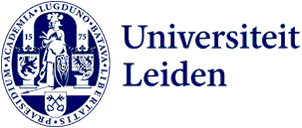PhD defence
Investigating palaeoclimate variability in the Iberian peninsula during the last glacial period and implications for Neanderthal disappearance
- A. Benson
- Date
- Thursday 7 April 2022
- Time
- Address
-
Academy Building
Rapenburg 73
2311 GJ Leiden
Supervisor(s)
- Prof. J-J. Hublin
Summary:
The Iberian Peninsula has been central to the discussion as it was considered to be a 'last refuge' for the species at a time when H. sapiens occupation spread throughout Europe. Much speculation has centred around the idea that extreme climate fluctuations during Marine Isotope Stage (MIS) 3 like Heinrich Stadial 4 (HS-4) were possible drivers for their disappearance. In other words, the extreme warm / cold fluctuations created an uninhabitable setting for Neanderthals, helping the dispersal of H. Sapiens into Iberia. These arguments were originally based on marine and ice core records of far-reaching origin that could provide little information at the local level. At the time this evidence was sufficient, as no other records were available. In recent years, studies have presented terrestrial palaeoclimate records from Iberia during the last glacial, but more are required to adequately understand the local response to Atlantic marine influences. Moreover, few terrestrial records are connected to known archaeological sites.
The research presented in this thesis provides a more comprehensive understanding of palaeoclimate change during the Last Glacial Period and the potential implications for Neanderthal / H. sapiens movements in Iberian Peninsula. To achieve this, we examine the importance of a robust and direct U-Th chronology in conjunction with establishing local, terrestrial palaeoclimate records for the coastal Iberian Peninsula during the Holocene and Last Glacial Period.
A technical experiment explored the importance of sample positioning for U-Th dating in palaeoclimate reconstructions. Our study highlights the importance of complementing palaeoclimate data with a direct and robust chronology. Following the technical study, we examined the seasonal and spacial connections between the Atlantic and western Iberian continental climate, using two Holocene specimens from Torres Novas, Portugal. The site was chosen for its rich archaeological relevance spanning MIS-11 to the Early Neolithic, as well as its proximity to the Atlantic marine influences. Using cave monitoring data in conjunction with simulated modern precipitation data from the area, we identify the growth rate for one specimen as a proxy for winter precipitation at our site.
Further building on our research, we reconstructed a palaeoclimate record using five specimens from coastal Figueira Brava and inland Torres Novas (Almonda), Portugal spanning part of the LGP (68 ka to 22 ka). We use a robust and independent U-Th chronology in conjunction with stable isotope and trace element data in effort to identify any anomalous climate features and / or large-scale interruptions that could potentially influence terrestrial flora / fauna in a drastic way. We applied our understanding of past environmental conditions to infer how this may have influenced Neanderthal movement on the local scale. Events observed in our record that reinforce the idea of large-scale dry phases spanning the Iberian Peninsula to South-western France. This is however not the case for the majority of MIS-3, where we see no explicit evidence of extraordinary drying occurring that could indicate a collapse of a population or species.
PhD dissertations
Approximately one week after the defence, PhD dissertations by Leiden PhD students are available digitally through the Leiden Repository, that offers free access to these PhD dissertations. Please note that in some cases a dissertation may be under embargo temporarily and access to its full-text version will only be granted later.
Press enquiries (journalists only)
+31 (0)71 527 1521
nieuws@leidenuniv.nl
General information
Beadle's Office
pedel@bb.leidenuniv.nl
+31 71 527 7211
